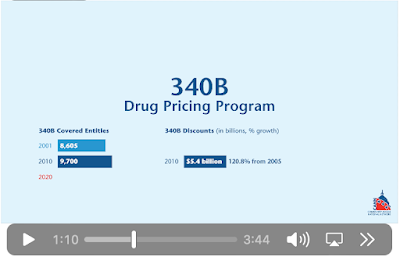By: Brandon M. Macsata, CEO, ADAP Advocacy Association & Jen Laws, Board Co-Chair, ADAP Advocacy Association
The ADAP Advocacy Association hosted its "Health Fireside Chat" retreat in Nashville, Tennessee among key stakeholder groups to discuss pertinent public health issues facing patients in the United States. The Health Fireside Chat convened Thursday, April 27th through Saturday, April 29th. The state of Tennessee cutting funding for HIV prevention, detection and treatment programs, a growing chorus calling for reforms to the 340B Drug Pricing Program, and the intersection between U=U (undetectable equals untransmittable) and reforming HIV criminalization laws were evaluated and discussed by the 24 diverse stakeholders.
The series was rebranded to encompass a broader focus on public health, changing from the HIV/AIDS Fireside Chat to the Health Fireside Chat. Unlike previous Fireside Chats, Nashville’s event added an “ice breaker” activity, themed in light of the hosting city – a line dancing lesson, as well as an informal town hall meeting convened in partnership with Positively Aware. The additional half day of activities — including the ice breaker, townhall meeting, and meet and greet — allowed attendees to settle into conversation expediently after having a solid hour of good laughs, encouragement, and bonding.
 |
| Photo Source: Getty Images |
The townhall meeting, which was facilitated by Rick Guasco, Acting Editor-in-Chief of Positively Aware, started with recognition that Nashville was explicitly chosen as a hosting city due to the state of Tennessee’s rejection of federal HIV prevention dollars. While a later discussion was specific to that issue, the town hall dug into underlying (and broader) concerns around systemic discrimination as a driver of today’s HIV epidemic. Digging into how racism, as an example, manifests can be a touchy subject in any group, even among those who generally align. Such a charged set of topics, especially among HIV’s thought-leadership, can and does lead to transformational moments, particularly because creating a space of “internal” advocacy provides a chance for us to experience, and navigate, conflict amongst ourselves. That conflict and navigation also provides us a chance to grow together and to break down silos of interest, work, and thought. And this townhall did exactly that.
The Health Fireside Chat included moderated white-board style discussion sessions on the following issues:
- Tension in Tennessee: Is an HIV Access to Care & Treatment Crisis Looming? — moderated by Jeffrey S. Crowley, Distinguished Scholar/Program Director, Infectious Disease Initiatives at the O'Neill Institute/Georgetown Law
- 340B Drug Discount Program: The Issues Spurring Discussion, Stakeholder Stances, and Possible Resolutions? — moderated by Kassy Perry, President & CEO, Perry Communications Group
- U=U: Is 'Undetectable Equals Untransmittable' Changing the Landscape for HIV Criminalization Laws? — moderated by Murray Penner, Executive Director, U=U plus, and S. Mandisa Moore-O'Neal, Executive Director, The Center for HIV Law & Policy
The discussion sessions were designed to capture key observations, suggestions, and thoughts about how best to address the challenges being discussed at the Health Fireside Chat. The following represents the attendees:
- Guy Anthony, President & Founder, Black, Gifted & Whole Foundation
- Jeffrey S. Crowley, Distinguished Scholar & Program Director at the Infectious Disease Initiatives, O'Neill Institute for National and Global Health Law, Georgetown Law
- Brady Etzkorn-Morris, Executive Assistant for Global Operations, Prevention Access Campaign
- Earl Fowlkes, President & CEO, Center for Black Equity
- Rick Guasco, Acting Editor-in-Chief, Positively Aware
- Hilary Hansen, Global Public Affairs Head, Oncology, Sanofi
- Kathie Hiers, President & CEO, AIDS Alabama
- Marcus Hopkins, Founder & Executive Director, Appalachian Learning Initiative
- Mark Hubbard, Patient Advocate
- Vanessa Lathan, HIV Health Policy Director, Black Ladies in Public Health
- Jen Laws, President & CEO, Community Access National Network
- David Wyley Long, Change The Pattern Associate, Southern AIDS Coalition
- Brandon M. Macsata, CEO, ADAP Advocacy Association
- Judith Montenegro, Program Director, Latino Commission on AIDS
- Mandisa Moore-O’Neal, Executive Director, Center for HIV Law & Policy
- Warren O’Meara-Dates, Founder & CEO, The 6:52 Project Foundation
- Murray Penner, Executive Director, U=U plus
- Kassy Perry, President & CEO, Perry Communications Group
- Amanda Pratter, Associate Director, Policy Advocacy and Alliances, Gilead Sciences
- Gwen Rathbun, Associate Director, Alliance Development, Merck
- Alan Richardson, EVP of Strategic Patient Solutions, Patient Advocate Foundation
- Donna Sabatino, Director State Policy & Advocacy, The AIDS Institute
- Andrew Scott, Director of Strategic Alliances and Issue Advocacy, Bristol Myers Squibb
- Robert Suttle, Patient Advocate
The Covid-19 pandemic is still ongoing. Covid-19 has killed at least 1,129,573 people and infected over 104 million in the United States since January 2020, according to data by the Centers for Disease Control & Prevention (CDC).
With that in mind, the ADAP Advocacy Association implemented strong Covid-19 safety protocols for the Health Fireside Chat, which included proof of vaccination/booster, robust self-administered testing (prior to travel, upon arrival, and after returning home), complimentary rapid self-test kits and hand sanitizer for each of the attendees, as well as guidelines for masks on commercial travel to the event, and optional masks during the sessions (which some attendees exercised without feeling shunned).
The ADAP Advocacy Association is pleased to share the following brief recap of the Health Fireside Chat.
Tension in Tennessee:
 |
| Photo Source: Rolling Stone |
- "Tennessee’s Rejection of $8.8 Million in Federal Funding Alarms HIV Prevention Groups," Ava Sasani, New York Times, March 24, 2023
- "A Dangerous Precedent: Tennessee Rejects Federal Funds for HIV Prevention," amfAR, January 20, 2023
- "How Tennessee Illustrates the Three Rules of MAGA," David French, New York Times Subscriber-Only Newsletter, April 13, 2023
The ADAP Advocacy Association would like to publicly acknowledge and thank Jeffrey S. Crowley for facilitating this important discussion.
340B Drug Discount Program:
340B remains an important issue for HIV advocates. As such, “340B Drug Discount Program: The Issues Spurring Discussion, Stakeholder Stances, and Possible Resolutions?“ was the focus of the second policy session. Some of the advocates in attendance knew little about the program, so the discussion provided an excellent educational opportunity on how the discount drug program works. Laser focused on issues of health equity, Kassy Perry of Perry Communications Group lead the group to dig in – and quickly. Advocates less familiar with 340B were readily able to identify the need for reform when assessing reductions in charity care and increases in medical debt. The group readily recognized 340B as a powerful tool toward addressing health disparities, especially economic consequences for patients, and where those consequences can and do negatively impact entire areas of patients’ lives. Attendees from industry partners listened intently as advocates described their concerns and the need for the program to better reflect the intent in which it was established. Equally important, what is being proposed in New York has alarmed both patients and providers alike.
There was considerable conversation over the news about a new coalition, designed to support true safety-net providers and the communities they serve. The Alliance to Save America’s 340B Program (ASAP 340B) is a partnership of community health centers, patient, provider, and consumer advocates, and leaders from the biopharmaceutical industry. The ADAP Advocacy Association and the Community Access National Network have joined the alliance, and numerous groups in attendance expressed interest in also joining the fight to make 340B reflect the needs of patients, and not hospitals and mega providers.
 |
| Photo Source: CANN YouTube Channel |
The following materials were shared with retreat attendees:
- California Healthline: “Community Health Centers’ Big Profits Raise Questions” | Do Some Centers Exploit 340B Dollars | (8/15/22)
- Gay City News: “Providers Urge State to Keep 340B Drug Discount Program Intact” | NYRx & Impact on State Clinics | (3/31/23)
- Niagara Frontier Publications: “NYRx: NYS Launches New Statewide Medicaid Pharmacy Benefit Program” | $705M to Make Clinics “Whole” | (4/3/23)
- Buffalo News: “Another Voice: Changes to New York’s Medicaid Pharmacy Benefit are Essential” | NY State Medicaid Director Argues for NYRx | (3/29/23)
- Axios: “To 340B or Not to 340B” | Status of Legislative Action on 340B | (12/8/23) **Full text pasted below due to paywall
- American Legislative Exchange Council: “The 340B Program and State Mandates” | Price-Fixing in State Legislatures Isn’t a Solution | (3/2/23)
- MedCity News: “Court Ruling Leaves 340B Providers Waiting for Clarity About the Use of Contract Pharmacies” | Curtailing Massive Contract Pharmacy Expansion | (3/26/23)
- 340B Report: “Hospitals Shouldn’t Fear 340B Reporting Requirements, House E&C Republicans Say; Democrat Matsui Raises Concern About Scapegoating” | Accountability is First Step Toward 340B Reform | (4/4/23) **Full text pasted below due to paywall
- Augusta Free Press: “Rep. Spanberger Continues Legislative Fight to Protect 340B Program” | The Preserving Rules Ordered for The Entities Covered Through (PROTECT) 340B | (4/6/23)
- 340B Report: “Arkansas and 340B Providers Ask Appeals Court to Back State’s Novel 340B Contract Pharmacy Law” | Status of Arkansas’ 340B Lawsuit | (4/11/23)
- Alliance for Integrity & Reform of 340B (AIR340B): “Learn more” | Coalition of advocacy groups, clinicians, and innovators committed to reforming and strengthening the 340B program
- 340B Health: “Learn more” | Membership organization of more than 1,400 hospitals and health systems
- Alliance to Save America’s 340B Program (ASAP 340): “Learn more” | An alliance between the biopharmaceutical industry and community health centers
- STAT News: “An unlikely new 340B alliance emerges between PhRMA and community health centers” | ASAP 340B to Push Reforms | (3/9/23) **Full text pasted below due to paywall
- 340B Report: “AHA Again Blasts PhRMA and NACHC’s Alliance to Remake 340B” | American Hospital Association Goes on the Offense | (4/11/23) **Full text pasted below due to paywall
U = U:
The final policy session, “U=U: Is 'Undetectable Equals Untransmittable' Changing the Landscape for HIV Criminalization Laws?“, focused on the intersection of issues between U=U and reforming HIV Criminalization Laws with the conversation hosted by Mandisa Moore-O’Neal, executive director of the Center for HIV Law and Policy, and Murray Penner, executive director of U=U Plus. Mandisa shared with the group the exceptional nature of HIV criminalization laws, but also how general criminal codes are out of date, furthering the HIV epidemic, and nearly exclusively used against Black and Brown people living with HIV. Mandisa also discussed how these laws can and are leveraged to further domestic violence (and coercive control). Murray then discussed how laws which allow for “affirmative defenses” only help those people living with HIV which can readily access and maintain care. All of which emphasized that the design of these laws assume that because someone is living with HIV, they are necessarily presumed “guilty”. Advocates discussed how to break silos, including the potential to partner in prosecutor and public defender education efforts. Advocates focused on health or with strong relationships with their local health departments, for example, might wish to participate in education efforts alongside legal advocacy organizations or a state Bar.
 |
| Photo Source: CHLP |
The following materials were shared with retreat attendees:
- Map: HIV Criminalization in the United States, CHLP (updated 2022)
- U.S. HIV Laws and Prosecutorial Tools, CHLP (updated 2022)
- What is the Consensus Statement on HIV "Treatment as Prevention" in Criminal Law Reform?, CHLP (updated 2022)
- WHAT DOES ABOLITION HAVE TO DO WITH HIV DECRIMINALIZATION AND MODERNIZATION?, Positively Aware (2020)
- Viral Load Does Not Equal Value, POZ (2019)
- Undetectable equals untransmittable (U = U): awareness and associations with health outcomes among people living with HIV in 25 countries, BMJ Journals (2021)
- Undetectable = Untransmittable (U = U) Messaging Increases Uptake of HIV Testing Among Men: Results from a Pilot Cluster Randomized Trial, NIH (2021)
The ADAP Advocacy Association would like to publicly acknowledge and thank Murray Penner and Mandisa Moore-O'Neal for facilitating this important discussion.
Additional Fireside Chats are planned for 2023 in Philadelphia, Pennsylvania, and New Orleans, Louisiana.


No comments:
Post a Comment